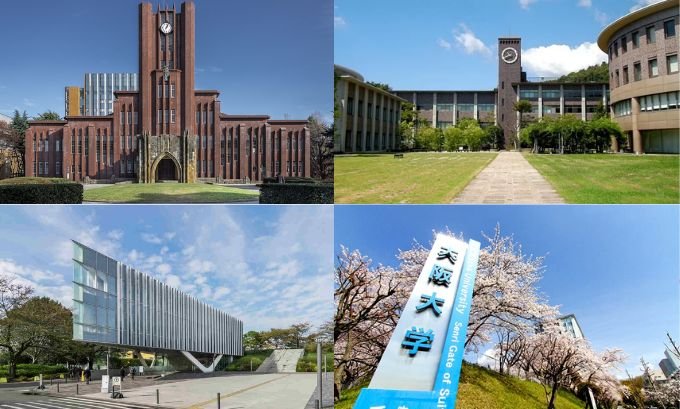Choosing where to study abroad is a huge decision. If Japan is on your list, you’re likely drawn to its unique mix of ancient traditions and futuristic technology. But which are the best universities in Japan for international students? The top institutions offer world-class education, often at a more affordable price than Western universities, combining academic rigor with an unforgettable cultural experience.
This guide provides an in-depth look at Japan’s leading universities. We’ll explore their rankings, programs, admission requirements, and what life is really like for an international student. From the bustling streets of Tokyo to the serene temples of Kyoto, we’ll help you find the perfect fit for your academic journey.
Table of Contents
Why Japan is a Top Choice for International Students
Japan offers a compelling package for students from around the world. The country is known for its safety, high quality of life, and incredible efficiency. Beyond that, it provides a deep cultural immersion. You can explore historic castles and temples, witness the breathtaking beauty of Mount Fuji, and enjoy modern cultural exports like anime and manga.
From an academic standpoint, Japanese universities are global leaders in fields like engineering, robotics, and life sciences. This reputation is backed by strong performance in global rankings. For instance, the QS World University Rankings consistently feature several Japanese institutions in the top 100, highlighting their academic excellence and strong employer reputation.
The affordability is another major draw. Tuition fees at national universities are significantly lower than in countries like the US or UK. Paired with a reasonable cost of living, especially in cities outside of Tokyo, and ample opportunities for scholarships for international students, Japan becomes an accessible option for many.
A Personal Experience: Navigating the Application Process
Let me share a story about a student named Alex, who was passionate about robotics and dreamed of studying in Japan. Alex was targeting the Tokyo Institute of Technology (Tokyo Tech), a world leader in his field. His journey highlights the key steps and challenges many international students face.
Initially, Alex was worried about the language barrier. While his program was offered in English, he knew that daily life and future job prospects would be better with some Japanese proficiency. He decided to start studying for the Japanese Language Proficiency Test (JLPT) a year before his application. He used online resources and found a local language exchange partner, which made the process more engaging.
When it came time to apply, he focused on building a strong profile. His application included his academic transcripts, letters of recommendation, and a compelling personal statement that connected his passion for robotics with the specific research labs at Tokyo Tech. He also spent weeks researching and applying for scholarships for international students, eventually securing one from the Japanese government (MEXT) that covered his tuition and provided a monthly stipend.
Alex’s first year was a blend of excitement and adjustment. While classes were in English, he joined a university club to practice his Japanese and make local friends. He found that professors were incredibly supportive and his lab work was even more advanced than he had imagined. Weekends were spent exploring Tokyo, from the vibrant Shibuya Crossing to the peaceful gardens of the Imperial Palace. His story shows that with careful planning and a willingness to embrace the culture, studying in Japan can be an incredibly rewarding experience.
What I Like: The Strengths of Studying in Japan
- Academic Excellence: Universities like the University of Tokyo and Kyoto University are globally recognized research powerhouses, producing numerous Nobel laureates.
- Affordability: National university tuition is standardized and low (around ¥535,800 or $3,600 USD per year), making high-quality education accessible.
- Cultural Immersion: Japan offers a rich cultural experience, from traditional arts to modern pop culture phenomena like anime and manga.
- Safety and Quality of Life: Japan is consistently ranked as one of the safest countries in the world, with clean cities and efficient public transportation.
- Career Opportunities: Graduates, especially in STEM fields, have opportunities with global giants like Sony, Panasonic, Nintendo, and Toshiba.
Areas for Improvement: Potential Challenges
- Language Barrier: While many top universities offer English-taught programs, navigating daily life, part-time jobs, and administrative tasks often requires at least basic Japanese. Preparing for the JLPT is highly recommended.
- Rigid Academic Structure: The Japanese education system can be more structured and hierarchical than in Western countries, which might be an adjustment for some students.
- Complex Bureaucracy: The application process for visas, scholarships, and university admissions can be paperwork-intensive and requires careful attention to detail.
- Work-Life Balance Culture: The intense work culture in Japan can sometimes extend to university research labs, with long hours being the norm.
Top Universities in Japan for International Students
Japan is home to hundreds of universities, but a select few consistently rank at the top for their academic quality, research output, and international outlook. We’ll dive into the best institutions, using the QS World University Rankings 2025 as our guide.
The Elite Institutions: Japan’s Top 5
These universities represent the pinnacle of Japanese higher education. They are highly competitive and are known for producing leaders in government, industry, and academia.
1. The University of Tokyo (UTokyo)
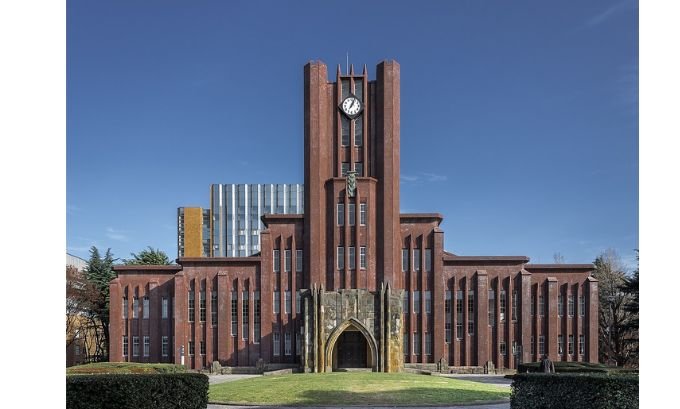
The University of Tokyo is Japan’s most prestigious university. Established in 1877, it’s the country’s oldest imperial university and has a formidable reputation both domestically and internationally.
- Global Rank (QS 2025): 32
- Why it’s Great: UTokyo excels across nearly every field, from law and economics to physics and medicine. It has produced the most Nobel Prize winners and Japanese prime ministers.
- For International Students: UTokyo offers a growing number of English-taught degree programs at both the undergraduate and graduate levels. Its location in the heart of Tokyo provides unparalleled access to internships and cultural experiences. The university has a large international student body, offering a supportive community.
2. Kyoto University
Often seen as the chief rival to UTokyo, Kyoto University is another world-class institution with a focus on academic freedom and innovative research.
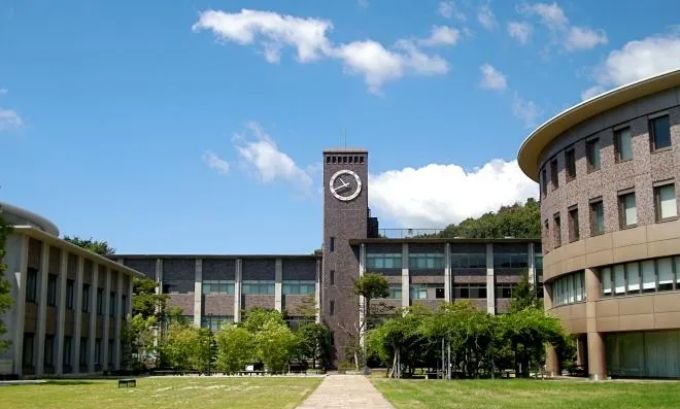
- Global Rank (QS 2025): 50
- Why it’s Great: Located in Japan’s historic capital, the university is known for its groundbreaking research, particularly in chemistry, biology, and theoretical physics. It has a strong tradition of fostering independent thinkers.
- For International Students: Kyoto University has a welcoming atmosphere for international researchers and students. The city of Kyoto itself is a major draw, offering a more relaxed and traditional environment compared to Tokyo, while still being a major city.
3. Tokyo Institute of Technology (Tokyo Tech)

For students passionate about science, technology, engineering, and mathematics (STEM), the Tokyo Institute of Technology (Tokyo Tech) is the premier choice in Japan.
- Global Rank (QS 2025): 84
- Why it’s Great: Tokyo Tech is a specialized university dedicated to advancing science and technology. It is renowned for its research in robotics, materials science, and computer science. Its strong industry connections provide graduates with excellent career prospects at companies like Sony and Panasonic.
- For International Students: A large portion of its graduate programs are offered entirely in English. The university actively recruits top students from around the world and has a vibrant international community.
4. Osaka University
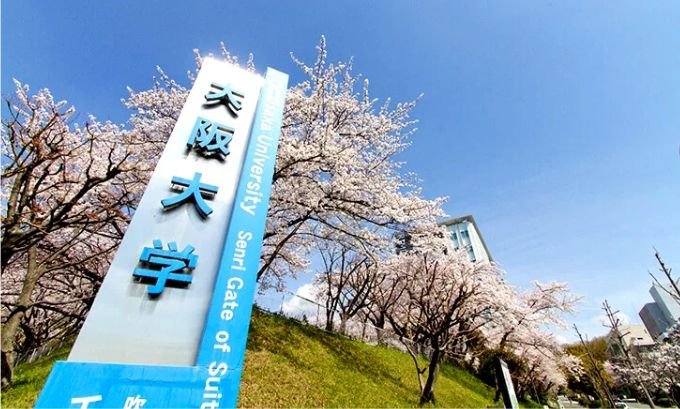
Located in Japan’s vibrant second-largest metropolitan area, Osaka University is a leading research university known for its practical, industry-focused approach.
- Global Rank (QS 2025): 86
- Why it’s Great: Osaka University excels in fields like medicine, dentistry, and engineering. It boasts the world’s first university hospital and has strong ties to the industrial and commercial hub of the Kansai region.
- For International Students: The university offers various English-taught programs and has a dedicated center for international students, providing support for everything from housing to language learning.
5. Tohoku University
Tohoku University is celebrated for its pioneering spirit and “open-door” policy. It was the first university in Japan to admit female students and the first to accept international students.
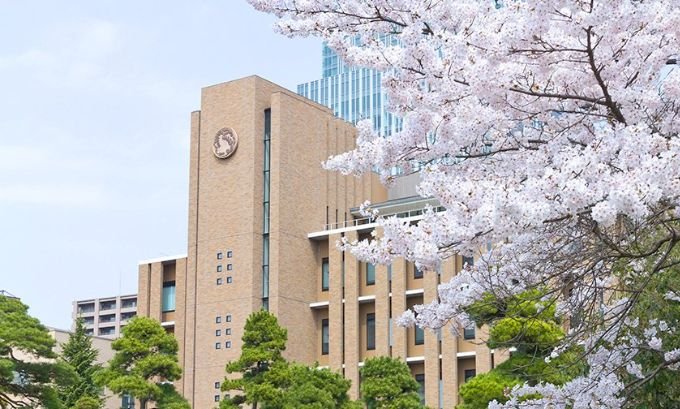
- Global Rank (QS 2025): 107
- Why it’s Great: The university is a world leader in materials science. It also has top-ranked programs in engineering and physics. Its location in Sendai offers a lower cost of living and a close-knit community feel.
- For International Students: Tohoku continues its tradition of openness with a strong focus on internationalization. It offers many programs in English and is known for its generous support systems for foreign students.
Whether you’re preparing for university life in Japan or need study essentials on a budget, Tokyo Mart offers a wide range of educational accessories perfect for international students.
Comparison of Top 5 Universities
| University | QS Rank (2025) | Location | Key Strengths | Avg. Tuition (National) |
|---|---|---|---|---|
| University of Tokyo | 32 | Tokyo | Comprehensive excellence, prestige | ¥535,800 (~$3,600) |
| Kyoto University | 50 | Kyoto | Research freedom, theoretical sciences | ¥535,800 (~$3,600) |
| Tokyo Tech | 84 | Tokyo | STEM, robotics, engineering | ¥535,800 (~$3,600) |
| Osaka University | 86 | Osaka | Medicine, industry collaboration | ¥535,800 (~$3,600) |
| Tohoku University | 107 | Sendai | Materials science, “open-door” policy | ¥535,800 (~$3,600) |
The Application Process for International Students
Applying to a Japanese university involves several key steps. Understanding the requirements early on is crucial for a successful application.
Key Admission Requirements
- Academic Transcripts: Universities will require your high school or previous university transcripts. A strong academic record is essential, especially for top-ranked institutions.
- Standardized Tests: Many universities require international students to take the Examination for Japanese University Admission for International Students (EJU). This exam tests Japanese language ability and academic subjects like science, Japan and the World, and mathematics. Some universities may accept other standardized tests like the SAT or ACT, particularly for English-taught programs.
- Language Proficiency:
- Japanese: If you’re applying to a Japanese-taught program, you will need to prove your proficiency, typically by passing the Japanese Language Proficiency Test (JLPT). Most undergraduate programs require N2 level, while some may accept N3.
- English: For English-taught programs, you’ll need to submit scores from tests like the TOEFL or IELTS.
- Application Essays and Letters of Recommendation: These are your chance to showcase your personality, goals, and suitability for the program. Take time to write a thoughtful essay and choose recommenders who know you well.
Finding and Applying for Scholarships
Japan is very generous with financial aid for international students. Don’t let finances deter you from applying.
- MEXT Scholarship: This is the most prestigious scholarship, offered by the Japanese Ministry of Education, Culture, Sports, Science and Technology. It covers tuition, a monthly allowance, and flights to Japan. The application process is highly competitive.
- University Scholarships: Most top universities, including the University of Tokyo and Kyoto University, offer their own scholarships for international students. These may be tuition waivers or monthly stipends.
- JASSO Scholarship: The Japan Student Services Organization offers scholarships for self-financed international students who demonstrate excellent academic performance.
- Private Foundations: Numerous private companies and foundations offer scholarships, often targeted at students from specific countries or in specific fields of study.
Researching scholarships for international students should be a key part of your application strategy. Start early, as deadlines are often well in advance of university application deadlines.
Life Beyond the Classroom: Living in Japan
Your experience in Japan will be defined as much by your life outside the university as by your studies.
Accommodation and Cost of Living in Japan
The cost of living varies significantly by city. Tokyo and Kyoto are the most expensive, while cities like Fukuoka and Sendai are much more affordable.
- University Dormitories: This is the most affordable and convenient option, especially for your first year. It’s also a great way to meet other international and Japanese students.
- Private Apartments: Renting an apartment gives you more independence but is more expensive and involves a complex process with key money, deposits, and a guarantor.
- Guesthouses (Share Houses): These are a popular option, offering a private room with shared living spaces. They are a good way to meet people and are generally cheaper than a private apartment.
Embracing the Culture
Studying in Japan is a chance for total cultural immersion. Join a university “circle” (club) to pursue a hobby and make friends. Explore the country’s incredible food scene, from high-end sushi to street-side takoyaki. Use the efficient train system to travel on weekends, whether it’s to see the snow monkeys in Nagano or the beaches of Okinawa.
Japan’s rich cultural landscape, from the iconic peak of Mount Fuji to the global phenomenon of anime and manga, provides endless opportunities for exploration and enjoyment. Living in a student-friendly city like Fukuoka, known for its relaxed atmosphere and delicious food, can offer a wonderful balance between study and leisure.
Career Opportunities After Graduation
Graduating from one of the best universities in Japan for international students opens up significant career opportunities. Many international students choose to stay in Japan to begin their careers.

To work in Japan after graduation, you’ll need to change your visa status from “Student” to a work visa. Universities have dedicated career centers to help with this process, offering resume-building workshops, job fairs, and interview practice.
Japan is a global leader in technology and manufacturing. Graduates from institutions like the Tokyo Institute of Technology (Tokyo Tech) are highly sought after by major corporations such as Sony, Panasonic, Nintendo, and Toshiba. These companies are known for their innovation in consumer electronics, automotive technology, and robotics, offering exciting career paths for engineers, developers, and business professionals.
Frequently Asked Questions (FAQ)
1. Can I study in Japan without knowing Japanese?
Yes, you can. Many top universities, including the University of Tokyo and Osaka University, offer a wide range of undergraduate and graduate programs taught entirely in English. However, learning some basic Japanese is highly recommended for daily life and will significantly enrich your experience.
2. How much does it cost to study in Japan for international students?
Tuition at national universities is standardized and affordable, around ¥535,800 ($3,600 USD) per year. Living costs vary by city, ranging from ¥80,000 to ¥150,000 ($550 – $1,000 USD) per month. Abundant scholarships for international students can help offset these costs.
3. Is it hard to get into a top Japanese university?
Yes, admission to elite universities like Kyoto University and Tokyo Tech is very competitive. A strong academic record, high standardized test scores, and a well-crafted application are essential.
4. What is the JLPT and do I need it?
The Japanese Language Proficiency Test (JLPT) is the standard exam to certify Japanese language ability. You will need to pass it (usually at the N1 or N2 level) if you are applying to a program taught in Japanese. It is not required for English-taught programs.
5. What are the best cities for students in Japan?
Tokyo and Kyoto offer the most prestigious universities and a vibrant student life, but they are expensive. Cities like Fukuoka, Sendai, and Sapporo are known for being more affordable and student-friendly, offering a high quality of life with a lower cost of living.
6. Are there job opportunities in Japan after graduation?
Absolutely. Japan’s aging population has created a demand for skilled foreign workers. Graduates in STEM fields are particularly sought after by major tech companies like Sony and Nintendo. Many universities have strong career support services for international students.
7. How do I apply for a student visa?
Once you receive a Certificate of Eligibility (CoE) from your university in Japan, you can apply for a student visa at the Japanese embassy or consulate in your home country. The process is straightforward but requires careful preparation of documents.
Conclusion
Choosing to study in Japan is an investment in a world-class education and a life-changing cultural experience. The best universities in Japan for international students, such as the University of Tokyo and Kyoto University, offer incredible academic opportunities in a unique and fascinating country.
From the cutting-edge labs at Tokyo Tech to the student-friendly vibe of Fukuoka, there is a perfect fit for every ambitious student. By understanding the application process, preparing for challenges like the JLPT, and actively seeking out scholarships for international students, you can turn your dream of studying in Japan into a reality.
Ready to take the next step? Start exploring the official websites of these universities and look into the MEXT scholarship program today. Your adventure in the Land of the Rising Sun awaits.

